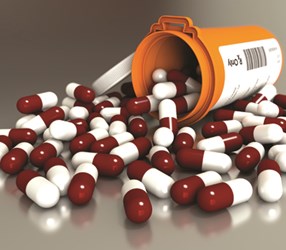Readers Vocal About Recent Healthcare Blog

By Rob Wright, Chief Editor, Life Science Leader
Follow Me On Twitter @RfwrightLSL

When I wrote the blog about Sarah Murnaghan’s recent double lung transplant surgery, I thought the article would strike a chord with folks. My point wasn’t to single out the 10-year-old’s treatment as being a bad thing, but draw attention to the fact that new and innovative medical treatments come at a cost. Typically, the costs of new technologies decline over time – Moore’s Law. Part of this is a result of competition, as well as improvements in manufacturing efficiencies. In the pharmaceutical industry, “genericization” of branded products eventually results in lower drug prices as well. But to have eventual generics, you need innovative branded products, as well as companies willing to invest in R&D. After the posting of this blog, I received emails from executives of small biotechs and Big Pharma, from the VP level all the way up to the office of CEO, expressing their opinion about the state of our industry.
Insights From A Biotech CEO
The CEO of a biotech working on bringing a new drug to market had this to share. “I think that we misunderstand the interrelatedness of innovation and cost. If we want new drugs to treat old or new diseases with no therapeutic options, we need to either pay up front (higher taxes, and full funding of R&D) or pay later (cost of drug greater than the cost of goods plus a percent of sunk costs). If we are content to pay only modestly for innovation, you can be sure we will get one-off drugs, and most of us will leave the industry. I try to explain this to public health officials (and foundations) regularly: you can ask me to sell my first new drug for cost +10%, but then I will never recover the cost of development (eventually, $200 million), and I will certainly not have enough capital to get you a better second drug, having learned from the first.”
The reader admits that it is a hard sell to public health and Congress and concludes the email with, “I like the perspective you gave. Few people look at the topic from both sides. What we do is not easy or inexpensive, and we enjoy the fact that, in the end, it is generally worth it. What the piece does not capture is that for many programs, there is not a happy ending (a cure) but the costs are the same. The alternatives are clear and well stated.”
Big Pharma Exec Shares Opinion
Another reader clarified at the beginning of their email that the opinion they were sharing was their own, and not their company’s. I also want to note the fact that an executive having to state this in correspondence demonstrates the sad state of the industry’s “CYA” culture. This individual had this to say. “What would we do without the pharma industry? My parents have survived cancer and heart attacks/bypass, have taken dozens of pills every day. They are in my life due to the industry in which I work. I can say after 30 years, I go home knowing we are improving health, saving lives, and working very hard doing it. I have no guilt, only pride about what I do. In our darkest days, we know it is worth it and we wouldn’t want to do anything else. A while back, when asking my team as to why they work here, I often got — because we save lives.”
The reader goes on to share a specific answer from a team member they found very interesting. “One team member shared how they worked in consumer goods as an intern and remembered the excitement of the company when they perfected the mixing of shampoo and cream rinse. It was then they knew they needed a career with a higher purpose and sought a role in the pharmaceutical industry. This person is not unique in this need for playing a role in human health.”
I can relate.
My Personal Experience Of Helping Patients
Though much of my experience has been on the commercial side of pharma, which is fraught with controversy, I too enjoyed the thought of making a difference in the lives of patients. I was once responsible for promoting and detailing doctors for an anti-depressant medication. When I walked into the office, the receptionist, who was located at an inner office nurse’s station, was so excited to see me because the doctor had finally prescribed the medication I had been selling. The excitement wasn’t based around the doctor having written her first prescription for the product, but the dramatic results the patient had experienced when they had begun taking it. When the doctor came out of an exam room, we began to discuss the case. However, something very gut wrenching began to take place. The receptionist had answered the phone. During the conversation, both the doctor and I clued into the fact that the receptionist was getting very emotional while on the phone. Upon hanging up, she stood up and with tears streaming down her face, told the doctor she had to leave. Unfortunately, the call was from her mother who had just found the dead body of the receptionist’s grandfather. Apparently, he had been suffering from depression. Unfortunately, he had committed suicide using a shot gun blast to the head. The dichotomy of having someone so excited to share one patient’s success, contrasted by the receptionist’s personal tragedy unfolding before my eyes provided clarity to the important role I played in helping patients.
